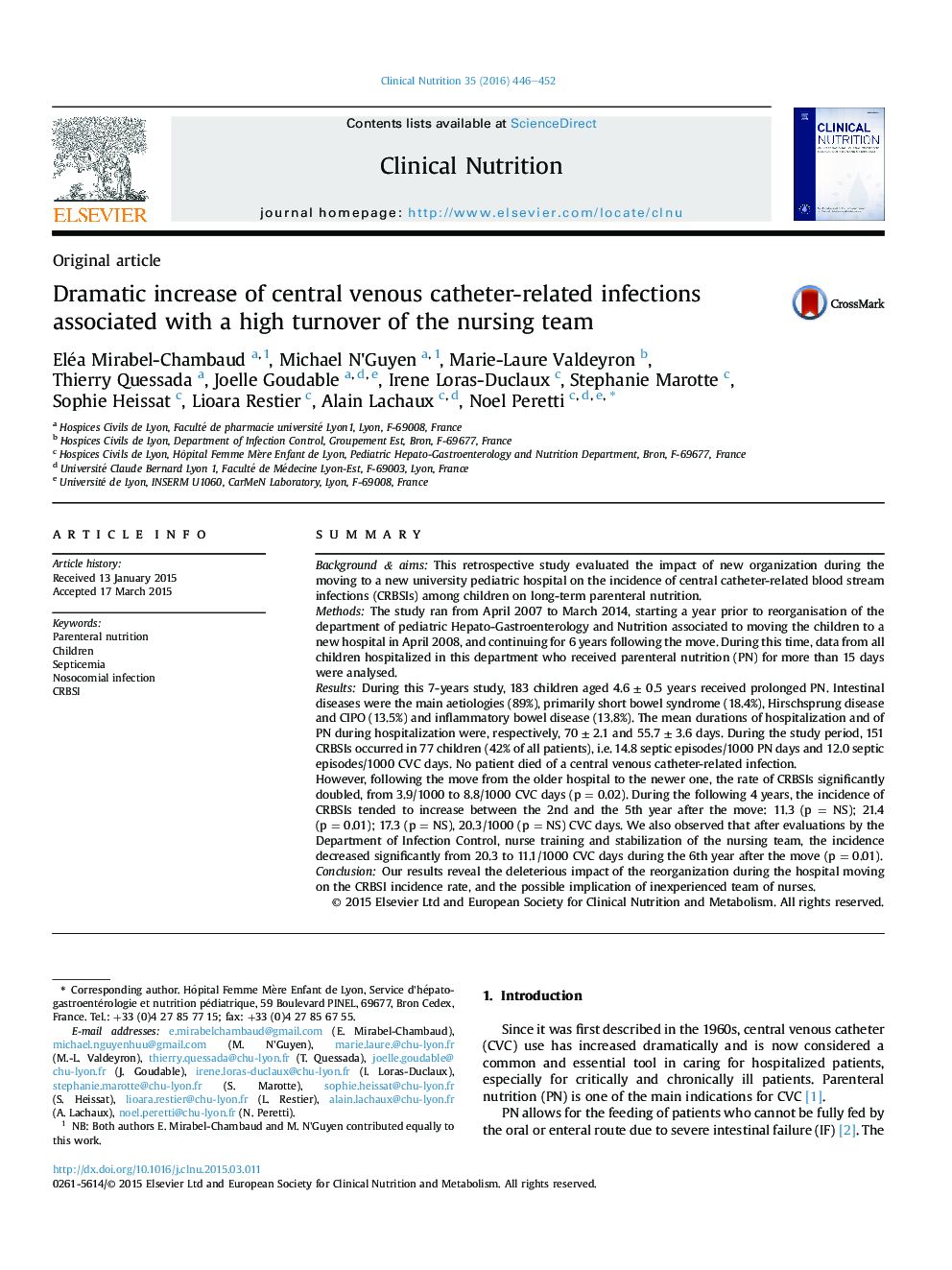| Article ID | Journal | Published Year | Pages | File Type |
|---|---|---|---|---|
| 5872233 | Clinical Nutrition | 2016 | 7 Pages |
SummaryBackground & aimsThis retrospective study evaluated the impact of new organization during the moving to a new university pediatric hospital on the incidence of central catheter-related blood stream infections (CRBSIs) among children on long-term parenteral nutrition.MethodsThe study ran from April 2007 to March 2014, starting a year prior to reorganisation of the department of pediatric Hepato-Gastroenterology and Nutrition associated to moving the children to a new hospital in April 2008, and continuing for 6 years following the move. During this time, data from all children hospitalized in this department who received parenteral nutrition (PN) for more than 15 days were analysed.ResultsDuring this 7-years study, 183 children aged 4.6 ± 0.5 years received prolonged PN. Intestinal diseases were the main aetiologies (89%), primarily short bowel syndrome (18.4%), Hirschsprung disease and CIPO (13.5%) and inflammatory bowel disease (13.8%). The mean durations of hospitalization and of PN during hospitalization were, respectively, 70 ± 2.1 and 55.7 ± 3.6 days. During the study period, 151 CRBSIs occurred in 77 children (42% of all patients), i.e. 14.8 septic episodes/1000 PN days and 12.0 septic episodes/1000 CVC days. No patient died of a central venous catheter-related infection.However, following the move from the older hospital to the newer one, the rate of CRBSIs significantly doubled, from 3.9/1000 to 8.8/1000 CVC days (p = 0.02). During the following 4 years, the incidence of CRBSIs tended to increase between the 2nd and the 5th year after the move: 11.3 (p = NS); 21.4 (p = 0.01); 17.3 (p = NS), 20.3/1000 (p = NS) CVC days. We also observed that after evaluations by the Department of Infection Control, nurse training and stabilization of the nursing team, the incidence decreased significantly from 20.3 to 11.1/1000 CVC days during the 6th year after the move (p = 0.01).ConclusionOur results reveal the deleterious impact of the reorganization during the hospital moving on the CRBSI incidence rate, and the possible implication of inexperienced team of nurses.
